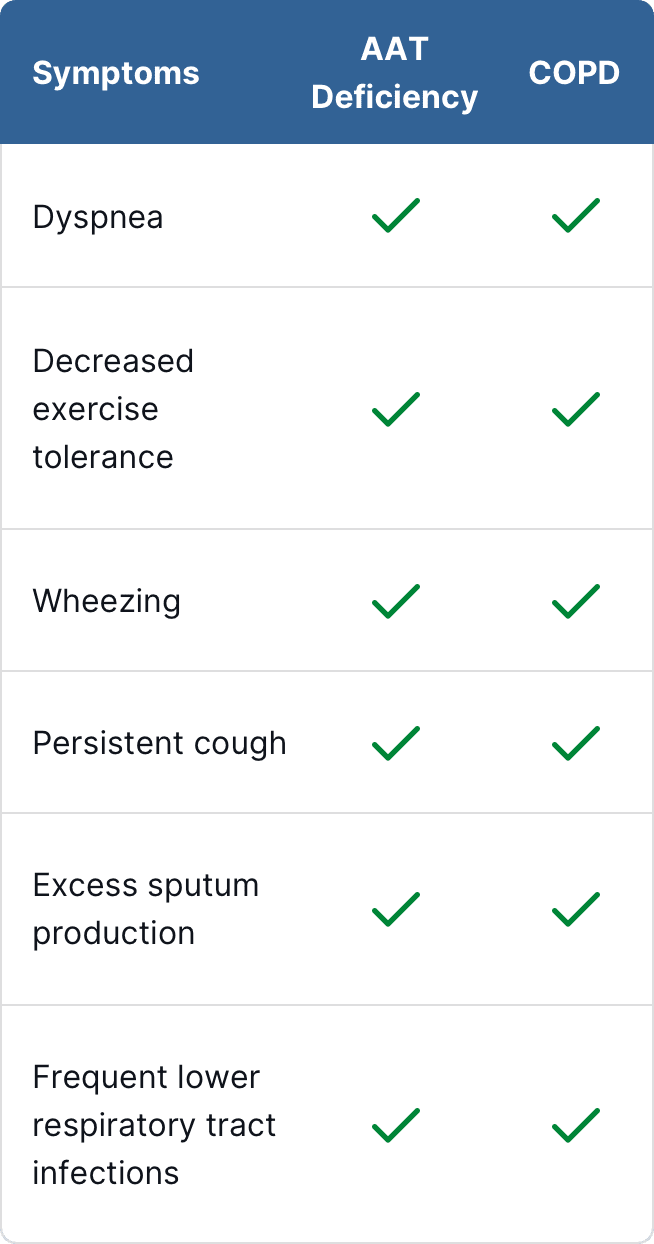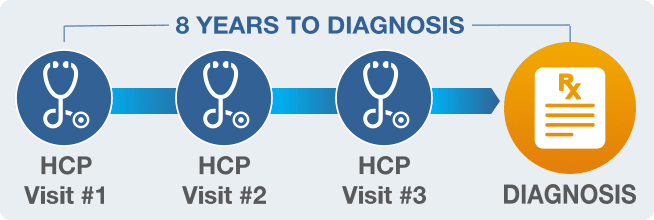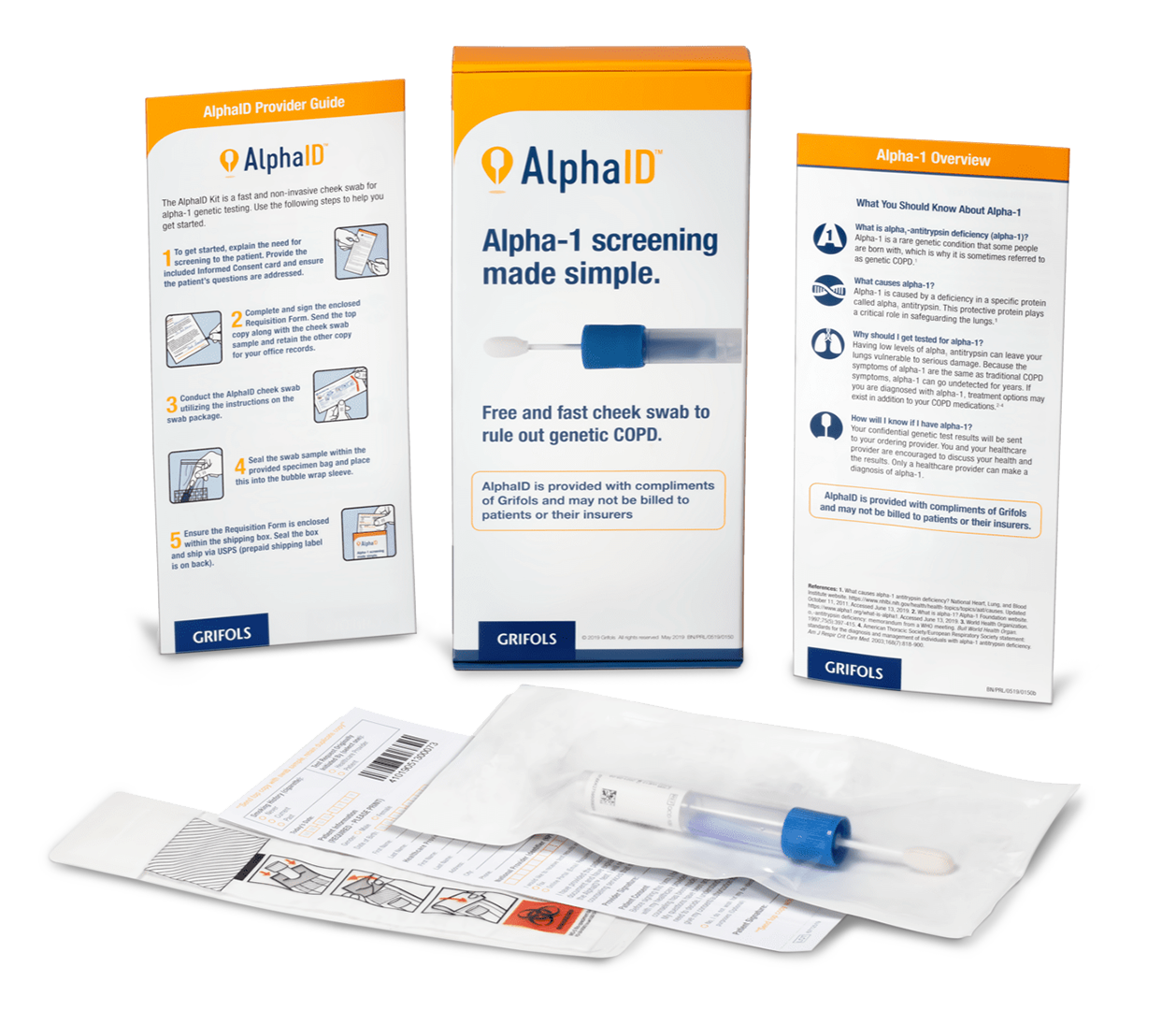AAT deficiency lacks a distinctive clinical presentation1,2
Alpha1-antitrypsin (AAT) deficiency shares an almost identical clinical presentation of signs and symptoms with COPD (which includes emphysema, asthma, and chronic bronchitis)2-4:

Patients with AAT deficiency or COPD may or may not have one or more of the symptoms listed above
In addition, AAT deficiency and COPD share many of the same evaluative tools, including spirometry, diffusing capacity, chest x-rays, chest CT, and blood gas.5
AAT deficiency is a hereditary condition and cannot be identified or diagnosed by physical examination alone.1,2 Alpha-1 should be ruled out even if the COPD patient has a smoking history.1
Carla’s Story
"It took me 30 years, 6 doctors, and 1 nurse practitioner to reach my diagnosis of alpha1-antitrypsin deficiency."
— Carla, patient living with alpha-1
Diagnostic delays are common
Individuals may wait 8 years and visit 3 providers between their first symptom (most commonly, dyspnea) and a positive diagnosis of AAT deficiency.6

Identifying AAT deficiency can be improved by performing routine screening tests for every patient with COPD or treatment-resistant asthma in your practice.7
*The receipt of these free testing services does not create any expectation or obligation to purchase or use any product or service offered by any manufacturer.

Genetic testing is required to detect and diagnose AAT deficiency.7
Up Next: HCP Resources
References:
- Stoller JK. Myths and misconceptions about α1-antitrypsin deficiency. Arch Intern Med. 2009;169(6):546-550.
- American Thoracic Society/European Respiratory Society. American Thoracic Society/European Respiratory Society statement: standards for the diagnosis and management of individuals with alpha-1 antitrypsin deficiency. Am J Respir Crit Care Med. 2003;168(7):818-900.
- National Organization for Rare Disorders. Alpha-1 antitrypsin deficiency. https://rarediseases.org/rare-diseases/alpha-1-antitrypsin-deficiency/. Accessed May 1, 2024.
- Lascano JE, Campos MA. The important role of primary care providers in the detection of alpha-1 antitrypsin deficiency. Postgrad Med. 2017;129(8):889-895.
- Data on file, Alpha-1 Genetics Laboratory.
- Campos MA, Wanner A, Zhang G, Sandhaus RA. Trends in the diagnosis of symptomatic patients with α1-antitrypsin deficiency between 1968 and 2003. CHEST. 2005;128(3):1179-1186.
- Brantly M. Campos M, Davis AM, D’Armiento J, et al. Detection of alpha-1 antitrypsin deficiency: the past, present and future. Orphanet J Rare Dis. 2020;15(1):96.
